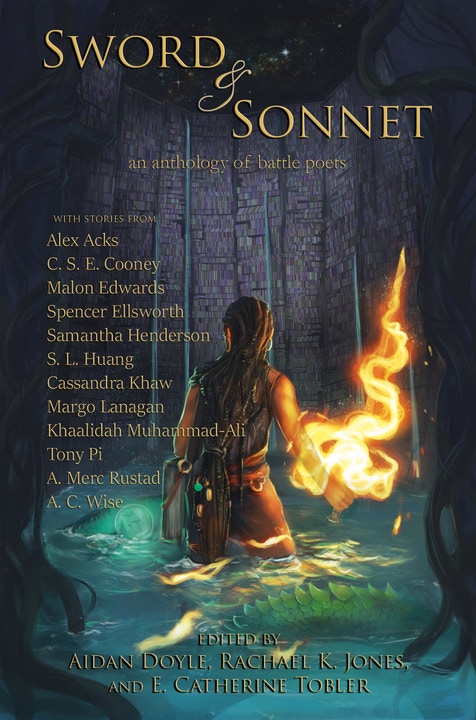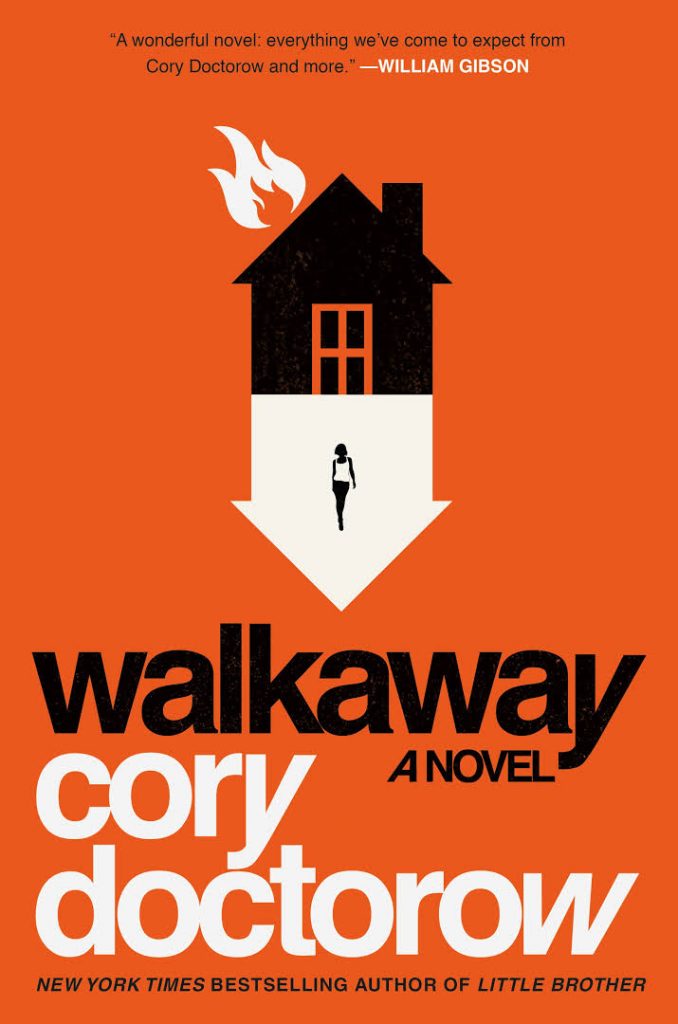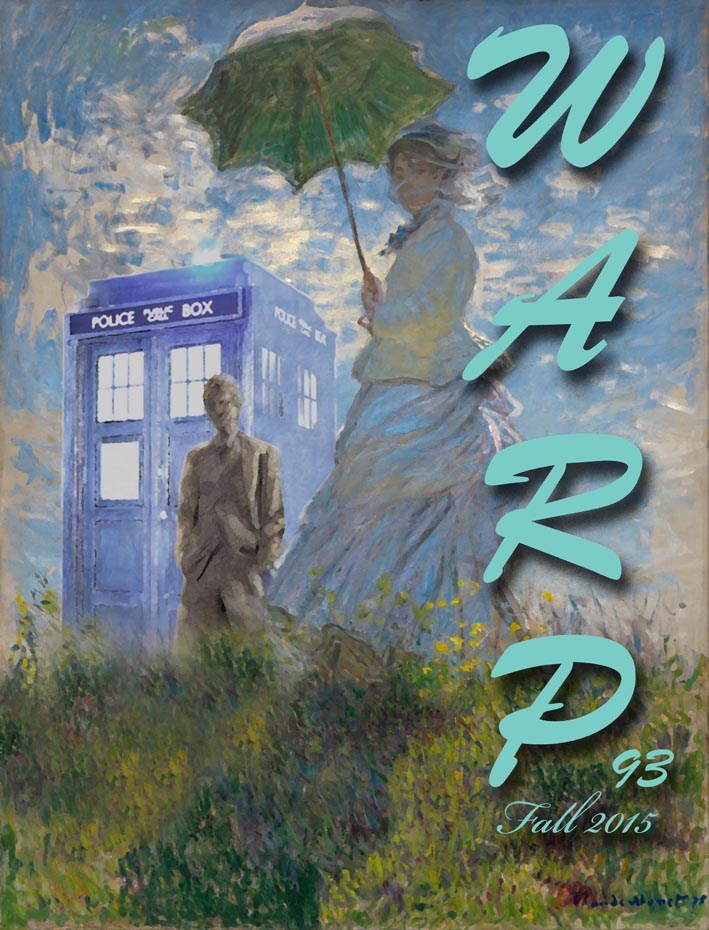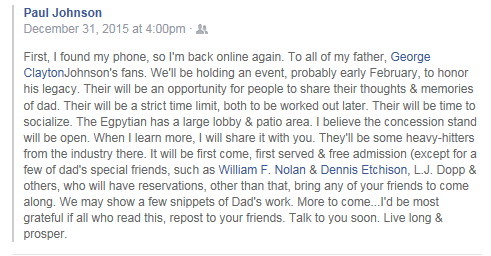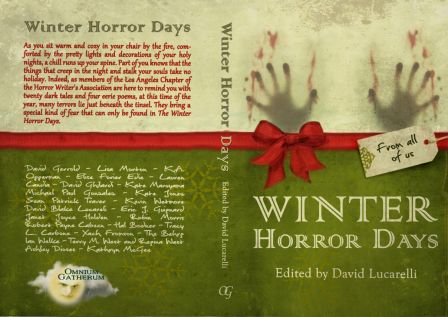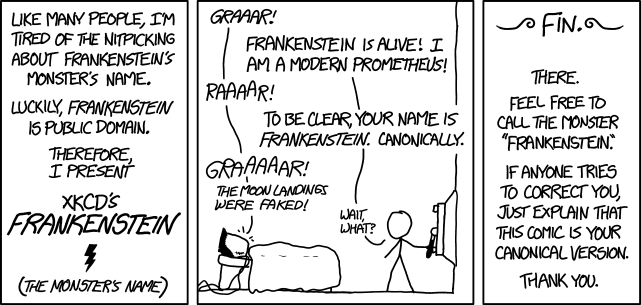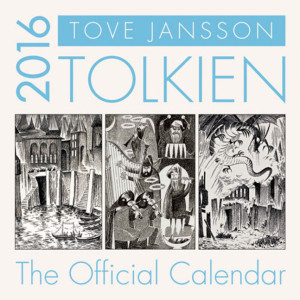(1) MORE MAPS. Ursula K. Le Guin shares the Hainish Endpapers from new editions of her books:
- Gethen Map by UKL Colorization by Donna G. Brown

- List of Known Hainish Worlds by Donna G. Brown, LoA.
(2) IT’S BEGINNINNG TO LOOK A LOT LIKE ADVENT. Hingston and Olsen have included stories by several sff authors in the 2017 “Short Story Advent Calendar”.
For the third straight year, the Short Story Advent Calendar is here to be the spice in your eggnog, the rum in your fruitcake—another collection of 24 brilliant stories to be opened, one by one, on the mornings leading up to Christmas.
These stories once again come from some of the best and brightest writers across North America, and beyond. Plus, this year featuring more all-new material than ever before!
Contributors to the 2017 calendar include:
- Kelly Link (Get in Trouble, Magic for Beginners)
- Jim Gavin (Middle Men, AMC’s forthcoming Lodge 49)
- Carmen Maria Machado (Her Body and Other Parties)
- Ken Liu (The Paper Menagerie, The Grace of Kings)
- Maggie Shipstead (Astonish Me, Seating Arrangements)
- and [REDACTED x 19]!
As always, each booklet is sealed, so you won’t know what story you’re getting until the morning you open it.
(3) WSFS PAPERS. Kevin Standlee announced more documentation from the 2017 Worldcon Business Meeting has been posted:
The 2018 WSFS Constitution (including all of the amendments ratified in Helsinki), Standing Rules for the 2018 WSFS Business Meeting, and Business Passed On to the 2018 WSFS Business Meeting are now online at the “WSFS Rules page”.
The Resolutions & Rulings of Continuing Effect are being reviewed by the WSFS Nitpicking & Flyspecking Committee, and I expect them to be online at the same page within a week or so.
Thanks again to Linda Deneroff for pulling this all together and putting up with me futzing around with the documents.
(4) I CHING, YOU CHING. At Galactic Journey, The Traveler has just gotten his hands on PKD’s brand new novel! “[November 6, 1962] The road not taken… (Philip K. Dick’s The Man in the High Castle)”.
Philip K. Dick has returned to us after a long hiatus with a novel, The Man in the High Castle. It is an ambitious book, longer than most science fiction novels. Castle‘s setting is an alternate history, one in which the Axis powers managed to defeat the Allies…somehow (it is never explained). Dick explores this universe through five disparate viewpoint protagonists, whose paths intertwine in complex, often surprising ways…
Surprisingly, The Traveler scoffs at the alternate history premise.
There are significant problems with Castle, however. For one, it suffers from lazy worldbuilding. The book is an opportunity for Dick to draw a wide cast of characters and depict their complex web of interactions. But the underpinnings of the world they inhabit are implausible. First and foremost, it would have been impossible, logistically, for the United States to have fallen to the Axis Powers. For that matter, I have doubts that the Soviet Union was ever in existential danger. Certainly the Reich never came close to making The Bomb – their racial theory-tinged science wouldn’t have allowed it. It is sobering when you realize that the Allies managed to fight two world wars and develop the most expensive and powerful weapon ever known all at the same time. An Axis victory in World War 2 resulting in the conquest of the United States is simply a nonstarter.
(5) EATING THE FANTASTIC. Scott Edelman invites everyone to “Sink your teeth into samosa with Karin Tidbeck” in episode 51 of the Eating the Fantastic podcast.
This time around, you get to listen in on my lunch at Mero-Himal Nepalese Restaurant with Karin Tidbeck during the penultimate day of the con. Tidbeck writes fiction in both Swedish and English, and debuted in 2010 with the Swedish short story collection Vem är Arvid Pekon? Her English debut, the 2012 collection Jagannath, was awarded the International Association for the Fantastic in the Arts William L. Crawford Fantasy Award in 2013 and was shortlisted for the World Fantasy Award. Her novel debut, Amatka, was recently released in English.
We discussed the serious nature of Live Action Role-Playing games in Nordic countries, the way pretending to be a 150-year-old vampire changed her life, how discovering Neil Gaiman’s Sandman comics made her forget time and space, the most important lesson she learned from the Clarion Science Fiction & Fantasy Writing Workshop, how she uses improvisational exercises to teach beginning writers, why Amatka grew from a poetry collection into a novel, what made her say, “I’m not here to answer questions, I’m here to ask them,” and more.
(6) CAN YOU EXPLAIN THAT AGAIN? Scholars contend: “Science Fiction Makes You Stupid” in a post at The Patron Saint of Superheroes.
That is a scientifically grounded claim.
Cognitive psychologist Dan Johnson and I make a version of it in our paper “The Genre Effect: A Science Fiction (vs. Realism) Manipulation Decreases Inference Effort, Reading Comprehension, and Perceptions of Literary Merit,” forthcoming from Scientific Study of Literature.
Dan and I are both professors at Washington and Lee University, and our collaboration grew out of my annoyance at another study, “Reading Literary Fiction Improves Theory of Mind,” published in Science in 2013. Boiled down, the authors claimed reading literary fiction makes you smart. And, who knows, maybe it does, but if so, their study gets no closer to understanding why–or even what anyone means by the term “literary fiction” as opposed to, say, “science fiction.”
Our study defines those terms, creates two texts that differ accordingly, and then studies how readers respond to them. The results surprised us. Readers read science fiction badly. If you’d like all the details why, head over to Scientific Study of Literature.
Arinn Dembo says about the article:
This is an interesting study. It strongly suggests that years of internalized stereotyping might influence the way you read and are *able* to read, in and out of the pulp genres you might favor. I said years ago, in my first published review, “If you don’t read outside the genre… soon you won’t be able to.”
But it might just be that if you listen too long to what arrogant, dismissive people think of your genre, you’ll stop being able to read it intelligently.
(7) VERSE WARRIORS. E. Catherine Tobler (Shimmer editor), Rachael K. Jones (recently nominated for World Fantasy Award for short fiction) and Aidan Doyle have launched a Kickstarter appeal to fund “Sword and Sonnet” an anthology of genre stories about battle poets.
“Sword and Sonnet” will be an anthology featuring genre stories about women and non-binary battle poets. Lyrical, shimmery sonnet-slingers. Grizzled, gritty poetpunks. Word nerds battling eldritch evil. Haiku-wielding heroines.
We have a wonderful group of writers who have agreed to write stories for us: Alex Acks, C. S. E. Cooney, Malon Edwards, Spencer Ellsworth, Samantha Henderson, S. L. Huang, Cassandra Khaw, Margo Lanagan, Khaalidah Muhammad-Ali, Tony Pi, A. Merc Rustad and A. C. Wise. We’ll also be holding an open submission period.
The cover art is by Vlada Monakhova. The project is live on Kickstarter throughout November. At this writing they have raised $1,982 of their $7,654 goal.
(8) IN PASSING. Here’s a photo of the late Ben Solon, a Chicago fan whose death was reported the other day.

L to R: John D. Berry, Ray Fisher and Ben Solon at a party at late Sixties Worldcon. Photo copyright © Andrew Porter
(9) COMICS SECTION.
- Darrah Chavey found the reason for the season in Cul de Sac.
- John King Tarpinian noted The Argyle Sweater getting its laughs at the pharmacy.
(10) TEMPLE TALK. Kim Huett writes to say he has updated his William F. Temple article with corrected information supplied by Rob Hansen in a comment.
Meantime, Bill Burns says he was “Surprised to see that when you posted Kim’s piece on Bill Temple the other day you didn’t also mention Rob Hansen’s excellent new compilation of Bill’s fan writing, Temple at the Bar – free in promotion of TAFF!”
It’s one of the free ebooks at Dave Langford’s TAFF site.
(11) MOO SIXTY-NINE. NASA’s New Horizons team is looking for help naming their next target — “Help us Nickname a Distant World”.
On January 1, 2019, NASA’s New Horizons spacecraft will fly past a small, distant, and cold world at the outer frontier of our solar system. The spacecraft is about to set the record for visiting the most remote world ever explored by humankind.
For now, our destination goes by the unexciting name “(486958) 2014 MU69“, or “MU69” for short. We would like to use a more memorable nickname when we talk about our target body.
At this site, we are asking you—the public—to suggest your ideas for the nickname to assign to MU69, and to vote for your favorites. The New Horizons team and NASA will review your best ideas and announce our selection soon—in early January, 2018.
… From here you can:
Would you believe — right now, Mjölnir is leading the poll.
(12) TRAD PIZZA. In “Papa John’s condemns new customers: White supremacists” the alt-right rationale that a business is “failing” – because it didn’t grow as fast as predicted (mind you, it still grew) – sounds like the same criticism recently levied against a sff writer who said his productivity was down.
Papa John’s pizza has a new customer, the alt-right.
In the days following a rant by Papa John’s CEO and Louisville resident John Schnatter where he blamed the NFL and anthem protests for low sales, a white-supremacist publication claimed it as their official pizza.
In a blog post at the Daily Stormer, a photo of pizza with pepperonis arranged in a swastika has a caption that reads “Papa John: Official pizza of the alt-right?”
“This might be the first time ever in modern history that a major institution is going to be completely destroyed explicitly because of public outrage over their anti-White agenda,” Daily Stormer writer Adrian Sol said.
Peter Collins, the senior director of public relations at Papa John’s, said the company was taken off-guard by the endorsement.
“We condemn racism in all forms and any and all hate groups that support it,” Collins told Courier Journal. “We do not want these individuals or groups to buy our pizza.”
Papa John’s released third-quarter sales figures last week that show diminished rates of growth at established North American locations: 1.5 percent this year as opposed to a projected 2- to 4-percent increase. In 2016, North American sales increased 5.5 percent during the same period.
(13) TWO-LEGGED SYLLOGISM OF THE DAY. In a piece mainly devoted to slandering David Gerrold, Dr. Mauser informs the sff community “The Science Fiction is Settled”, indulging in the fallacious logic that if any member of a group wrote sff in the early days of the genre, by that date the field was wide open to writers from that group.
And then, tragedy strikes. Because to Gerrold, Change has an Arrow on it, with a single destination, and it’s pointing to the left. He launches into a paean about Immigrants and diversity and the global village because Diversity is Strength! And then:
So, yes, it is inevitable that science fiction authors will explore that diversity — expanded roles for women, new definitions of gender and sexuality, the contributions of People of Color and other non-white ethnicities. We’ve discovered the overlooked skills of the aged and the disabled, the unusual and extraordinary ratiocinations of people who are neuro-atypical. The next generation of authors are exploring vast new landscapes of possibility — places to explore and discover ways of being human previously unconsidered.
It’s not that SF CAN explore those things, but that SF SHOULD explore those things he seems to think. Forget exploring the stars or asking “What if we’re not alone in the universe?” Nah, we’re alone, so let’s spend all our speculative energies on exploring our own bad selves. He grudgingly admits that while we have probes going past Pluto, “some of our most ambitious authors are turning their attention to a different frontier —exploring the workings of the human soul.” I suppose our navels give us much more instantaneous gratification than the stars. But really, that kind of narcissism is only interesting to the narcissist.
And at this point, we can see where the train leaves the tracks, because he switches from talking about science fiction, to the science fiction community, while trying to carry the same points. He talks about the changes in the SF Community from all these new folks of diverse backgrounds showing up. The only problem with this theory is that they have always been here. There’s a case of DoubleThink going on here when the same folks who like to claim Mary Shelley as one of the first female authors of Science Fiction, and then set it out there as if women are something new, and even more patronizing when they act as if their side’s genuflecting to Feminism is somehow responsible for their appearance. No, this is not a change. Try reading some C.L. Moore and realize that not only have women been in SF all along, they have been awesome.
Likewise with minority writers. The publishing world is, or at least was, the ultimate meritocracy. Since most of the business was conducted by mail, a publisher had no clue about the racial background of an author. Bias was eliminated through the medium of the Manila envelope. It takes very little research to find out that Black authors have been writing science fiction since the turn of the century. No, not this century, the previous one. Likewise for Gay authors, an obvious example being from the previous list, Samuel R. Delany. He was first published in 1962. That’s FIFTY FIVE years ago. This “change” Gerrold is touting really is nothing new.
Do you think there’s much chance that David Gerrold will be stunned to learn a gay author wrote sf in the Sixties?
(14) TURNOVER AT CASTALIA HOUSE BLOG. Jeffro Johnson is leaving the Castalia House blog. Contributor Morgan Holmes will take charge. Culture warrior Johnson said in his farewell post —
I remember when Sad Puppies first came to my attention. Upon reading the most vilified author of the whole crop– Vox Day, of course– I saw a nominated story that’s worst fault could only be that it was explicitly Christian. Looking up the publishing house it was produced at, I found a manifesto stating their goal to restore fantasy and science fiction to more what it was like when it was written by Tolkien and Howard. (And yeah, I had no idea how the person that wrote that could possibly think that a pulp writer like Robert E. Howard could be anywhere on par with J. R. R. Tolkien. And even more ironically, I couldn’t imagine how a “Campbellian Revolution” they claimed to want could be anything other than good.)
…So much is happening in the wider scene today that I can barely keep up with even a portion of it. Along with that, I find that areas of my life outside of gaming and fiction have increasingly laid greater and greater claims to my time. And while I wish I could do all the things that I can think of that could really capitalize on everything that’s developed here… I’m afraid I instead have to admit that I’ve run with all of this about as far as I can.
It’s a tough thing to do, but I think it’s the right thing for me at this time. So I’m handing over editorship of Castalia House blog to Morgan Holmes, who has been writing about classic fantasy and science fiction here almost as long as I have. (Good luck, man!)
(15) ONE THING PEOPLE SEEM TO AGREE ABOUT. On National Review Online, Heather Wilhelm, in “The Surprising Joy of Stranger Things”. praises the show for being “a good, non-angry, non-political TV show.”
The show features “a prelapsarian world of walkie-talkies, landlines, and suburban kids left free to roam wherever they want on their bicycles,” wrote Emily Nussbaum in The New Yorker last year. Or, as Ross Duffer told Rolling Stone: “We were the last generation to have the experience of going out with our friends to the woods or the train tracks and the only way our parents could connect with us was to say, ‘It’s time for dinner.’” That world is largely gone, and with it, many childhood adventures. The image of a freewheeling kid on a bicycle, so integral to iconic films such as E.T. — Matt and Ross Duffer make no secret of drawing inspiration from classic ’80s blockbusters — is also integral to Stranger Things. Tooling around town or in the local woods on a bike is almost diametrically opposed to most widely approved childhood activities today, which tend to involve hyper-organized and ludicrously time-consuming team sports that seem purposely designed to torture kids and parents alike. Tooling around town or in the local woods on a bike is almost diametrically opposed to most widely approved childhood activities today. But given free rein on their bikes in and around the town of Hawkins, the kids of Stranger Things can meet up, explore, barrel through the forest, investigate baffling occurrences, and evade a posse of bad guys from a sinister government agency gone awry. That would be the Hawkins National Laboratory, a hulking structure nestled deep in the midwestern woods, packed to the gills with mysteries. According to the Duffer brothers, it was inspired mostly by “bizarre experiments we had read about taking place in the Cold War.”
(16) HERDING CATS. Camestros Felapton expanded his survey of animals in sff blogs (“Blogstrology”) to include one more —
Rocket Stack Rank www.rocketstackrank.com is interesting because the animals mentioned would be more determined by their incidence in short fiction. Overall low frequencies and RSR has no presence on the otter or goose dimensions. Wolf-Rabbit-Cat blog – “Cat” strongly assisted by reviews of the works of Cat Rambo.
Goat has a presence but is just shy of the top 3.
(17) GLASGOWROK. Apparently he’s a riot pronouncing the word “bairn” — “Jeff Goldblum Answers Scottish Themed Questions About the End of the World Posed by Wee Claire”.
While promoting his new film Thor: Ragnarok, the wonderfully affable Jeff Goldblum sat down with Wee Claire of the BBC Scotland show The Social to answer a few Scottish-themed questions about the end of the world.
(18) VIDEO OF THE DAY. “Time Travel in Fiction Rundown” on YouTube is a look at how lots of movies and Ender’s Game and Harry Potter and the Prisomer of Azkaban handle the time travel theme.
[Thanks to John King Tarpinian, JJ, James Davis Nicoll, Bill Burns, Kim Huett, Martin Morse Wooster, Cat Eldridge, Mike Kennedy, Carl Slaughter, and Scott Edelman for some of these stories. Title credit goes to File 770 contributing editor of the day Xtifr.]


